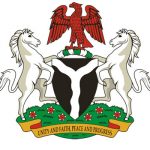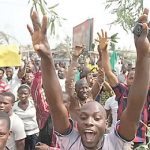
Once a soldier, always a soldier. Likewise, a barrister at law should remain as such irrespective of his office at anytime. For a lawyer to raise an eyebrow against a particular form free speech can be expressed is attention-seeking; legal practitioners are not expected to make errors on issues regarding individual liberty. Of a truth, when President Buhari spoke in a national broadcast after spending over 100 days in London, the one good topic he emphasised was Nigeria’s unity not being negotiable. Apart from this, the president sounded more of a military than the democratic leader that he is. In the President’s word: “Nigerians are robust and lively in discussing their affairs, but I was distressed to notice that some of the comments, especially in the social media have crossed our national red lines by daring to question our collective existence as a nation. This is a step too far.”
It sounded like the infamous quote of an African dictatorial leader, Idi Amin: ‘Freedom of speech I can guarantee but, I cannot guarantee freedom after speech’, in its interpretation. Similarly, Vice-President Osinbajo drew the line on hate speech. He said: “Hate speech is a specie of terrorism. The Terrorism Prevention Act 2011 as amended defines terrorism as an act which deliberately done with malice which may seriously harm a country or is intended or can be reasonably be regarded as having been done to seriously int
imidate a population.” The question is, to what extent can freedom of speech be enjoyed democratically before it is pronounced as a hate speech? A democratic set-up makes provisions for the expression of the freedom of speech, freedom of association, movement and the like. So, one can belong to a political party as a matter of choice; one can speak out when there’s such need either in words or writings.
Significantly, hate speeches have their roots in the association one belongs to. The divergent political parties in the country cannot to disconnected from what people say about/against the government. Opposition and freedom of speech are basic ingredients of democracy that should never be restrained because they keep the government on its toes to provide the dividends of democracy to the citizenry as well as checkmate excesses in governance. A report published in The Economist in May 2017 stated that “the world’s most valuable resource is no longer oil, but data”. Data is the indispensable commodity strengthening the fastest- growing industries – Facebook, Instagram, LinkedIn, WhatsApp. But the Nigerian government is attempting to shrink the growing tide in a way. The government monitoring the social media comments might be a dead end. Why? Data economy cannot be shrinked in the name of curbing hate speeches. Education can undoubtedly guide/train the minds of youths on how the internet can be used responsibily. The major problem that paved the way for hate speeches is simply the gap in communication. An instance is on the purported news on President Buhari’s death – a rumour that thrived when details regarding the health of the president became shrouded in secrecy.
Rather than waging war against the use of social media, the government should channel its efforts aright, see to national development and meticulously communicate this to the populace. Good works will speak for themselves irrespective of any efforts and criticisms made to water them down. When citizens’ sustenance and development are maximizally ensured, they will become the heralds of the laudable activities of the government even while some speak to the contrary. The Federal Government launched the Federal Government Information App (FGIAPP) in December, 2016 with the purpose of informing the citizenry about the activities of the Government, as described by the Minister of Information and Culture, Alhaji Lai Mohammed.
The minister stressed that: “The activities of the present administration are hugely under-reported, hence the need to align with the global trend in information sharing. The government is doing so much, yet people keep saying they do not know because we are not communicating through the right channel. The new app will bridge the gap by using the social media to tell the world what thegovernment is doing.” Why then do we intend monitor social media comments when we can set aright the minds of many through this same right channel? It is unfair to be strict on what Nigerians comment about the government while we made alive a platform to cheer the praises of this same government only.
- Ogunjobi lives in Lagos
WATCH TOP VIDEOS FROM NIGERIAN TRIBUNE TV
- Let’s Talk About SELF-AWARENESS
- Is Your Confidence Mistaken for Pride? Let’s talk about it
- Is Etiquette About Perfection…Or Just Not Being Rude?
- Top Psychologist Reveal 3 Signs You’re Struggling With Imposter Syndrome
- Do You Pick Up Work-Related Calls at Midnight or Never? Let’s Talk About Boundaries






